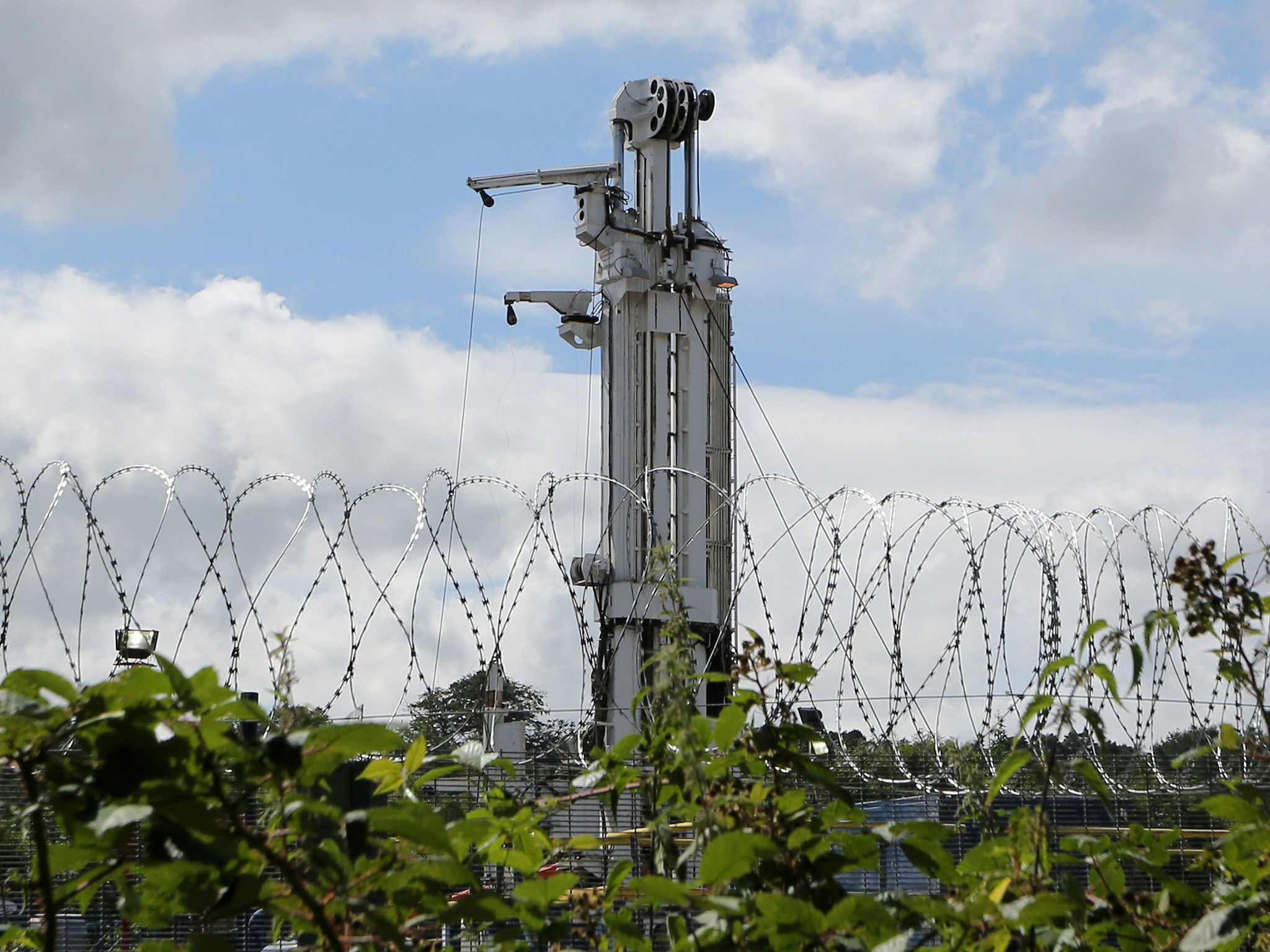'Fracking is safe,' says Government's own health body
Public health risks of shale gas extraction are 'low', if operations are well run

Your support helps us to tell the story
From reproductive rights to climate change to Big Tech, The Independent is on the ground when the story is developing. Whether it's investigating the financials of Elon Musk's pro-Trump PAC or producing our latest documentary, 'The A Word', which shines a light on the American women fighting for reproductive rights, we know how important it is to parse out the facts from the messaging.
At such a critical moment in US history, we need reporters on the ground. Your donation allows us to keep sending journalists to speak to both sides of the story.
The Independent is trusted by Americans across the entire political spectrum. And unlike many other quality news outlets, we choose not to lock Americans out of our reporting and analysis with paywalls. We believe quality journalism should be available to everyone, paid for by those who can afford it.
Your support makes all the difference.The public health risks of shale gas extraction, or fracking, are low – so long as operations are run securely, government health officials have said.
In a report that will be seen as a green-light for the Government’s controversial plans to exploit Britain’s shale gas reserves, Public Health England (PHE) said that studies in the USA which had suggested possible health risks from emissions and contaminated water supplies were “limited and uncertain”.
Any health risks that might occur would come from “operational failure”, such as leaks and poor storage of waste products, officials said, warning that “good on-site management and appropriate regulation” were essential.
Fracking involves drilling down into the earth and blasting water, sand and chemicals into shale rock to release the gas inside.
The British Geological Survey estimates there could be 1,300 trillion cubic feet of shale gas in the north of England and with pressure on the UK’s energy supply becoming ever greater, the Government is keen to begin capitalising on it.
However, the extraction technique, which is already used on a commercial scale in a number of countries including the USA, has raised a number of health and environmental concerns.
Gas company Cuadrilla halted operations in 2011 after fracking was blamed for earth tremors in Blackpool, but a government review later concluded fracking was safe if properly monitored.
Fears in the US have focused on the risk of contamination of the water supply from the chemicals used in and released by fracking.
However, health officials said that the chemicals – including methane, bromide and lead – were no different used to those released by other industrial processes.
Dr John Harrison, director of PHE’s Centre for Radiation, Chemical and Environmental Hazards, said: “The currently available evidence indicates that the potential risks to public health from exposure to emissions associated with the shale gas extraction process are low if operations are properly run and regulated.”
Officials admitted that the available evidence on fracking was limited and not always easily applicable to British geology and regulatory law, and pledged to closely monitor future commercial operations in the UK.
Energy minister Michael Fallon said: “The UK has the most robust regulatory regime in the world for shale gas and companies will only be granted permission to frack for shale if their operations are safe.”
Join our commenting forum
Join thought-provoking conversations, follow other Independent readers and see their replies
Comments